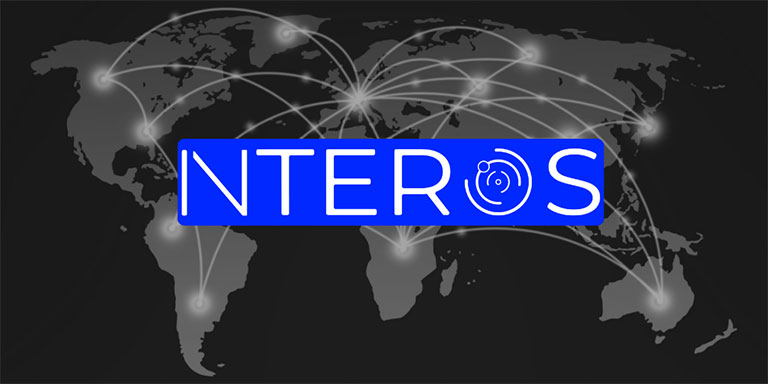
November 13, 2019
Earlier this month, it seemed as if Brexit might have reached an inflection point. But the UK parliament refused to ratify the October 16 deal that UK Prime Minister Boris Johnson struck with the EU. What followed was a week of gamesmanship, which saw Johnson reluctantly ask the EU for an extension on the October 31 ratification deadline. He also called for a new election in order to refresh his Brexit mandate. The three-month extension was granted and parliament set December 12 as the date for the new election. Most importantly, the worst-case scenario, an economically catastrophic “no-deal” Brexit, has been averted for the time being.
For large organizations with complex, multi-tiered global supply chains and for mid-sized businesses that serve these supply chains, it’s reasonable to breathe a sigh of relief — but there is no time for complacency. Brexit is still coming. It could very well happen during 1Q20 and will, in all probability, be an extremely disruptive “hard” Brexit. Such a separation, while more orderly than a no-deal Brexit, would cut off the UK from the EU common market. It would remove the world’s fifth largest economy from the EU’s existing trade agreements and the customs union. The upshot is that supply-chain-dependent organizations have at least a few more months to consider the impact Brexit will have on their ability to function and plan accordingly.
Most large companies operate within global supply chains, both upstream and downstream, and are sensitive to natural and man-made occurrences – natural disasters, extreme weather, violence, labor issues, cyber-attacks, financial meltdowns and geopolitical events – that may be localized in terms of direct impact but have rippling effects that cause severe disruption on a wide scale. Brexit is a case in point. Global business has become defined by supply-chain interconnectedness that knits economies together through the internet, advances in transit, and countless other factors.
As a gateway to Europe, the UK is a principle hub and Brexit has the potential to be arguably the most significant geopolitically disruptive force we’ve seen since World War II. The UK will have to build its trading framework from scratch, including bi-lateral deals, new customs procedures and regulatory regimes, global banking protocols, and immigration laws. UK policy-makers will be largely making it up as they go along, leading to costly disruptions in the flow of goods and services into and out of the UK.
This reality has created widespread uncertainty surrounding more than a trillion dollars in combined imports to and exports from the UK – and uncertainty is a global supply chain’s biggest enemy.
The shipping industry will almost certainly see an immediate impact, given the sudden and dramatic shift in relevant regulations, such as cabotage, CO2 emissions testing, customs inspection times, technical and safety standards, and VATs on imports. Financial projections, port arrangements, security measures, operations, and human resources management will all have to undergo critical review to determine what changes will need to take place when, and how these changes will impact business partnerships across the board.
Until new trade agreements can be negotiated and ratified, which could take months or even years, trade involving the UK with any country or trading bloc not covered by a new bi-lateral agreement will revert back to coverage under the World Trade Organization (WTO). Because the WTO mandates higher tariffs than current EU-negotiated deals, a 2016 study by economists at the University of Cambridge estimates that just under half of all exports will see tariff increases between one and 10 percent. This will hit the global automotive sector, which is dependent on just-in-time delivery of parts, and agricultural sector particularly hard. In addition, the global food industry will need to right-size logistical capacity on products flowing in and out of the UK due to decreased volume from higher costs.
Brexit will disrupt the UK’s status as Europe’s financial hub. A 2019 study by University College London suggests that this disruption will result from new laws that govern the flow of commercially vital data between the UK and the EU. There is speculation that Brexit could result in the loss of more than 5,000 finance jobs in the financial industry alone. And while UK banks claim that they are solvent enough to continue commercial lending as normal, it is impossible to know for certain what will happen to global credit markets if the UK’s GDP takes a nosedive, which many economists believe will be the case.
Industries like commercial aviation and pharmaceuticals have, for years, counted on EU free-movement laws. While there will be short-term measures in place to allow for air takeoffs and landings between the UK and EU, the entire commercial aviation industry will eventually have to adapt to new regulations. However, there is no clarity on these regulations as of yet. In pharma, new immigration parameters that are – as yet – undefined will mean companies in both the EU and UK will no longer be able to easily and quickly hire uniquely specialized scientists and managers from one another’s territories. Furthermore, higher tariffs will lead to shortages of supplies that pharmaceutical companies need for both R&D and manufacturing.
Individual organizations cannot afford to wait for Brexit, but any further procedural delay is a gift. This is the time to identify where in the supply chain an organization is directly or indirectly sourcing products from the UK and the EU, including data. But identifying acute risks is only the first step. Organizations need to map and model their entire supply chains and use business analytics with aggregated data from a vast range of sources to visualize the impact of future scenarios related to Brexit that cannot be predicted. Even small changes in the global subtier suppliers can send ripples that reverberate up and down the supply chain. Because humans can’t keep up with and interpret the constant flow of data relevant to a specific organization’s supply chain, it’s important to consider how intelligent, automated solutions can provide enhanced visibility and risk analysis before an impactful event occurs.
While Brexit may be the most immediate and obvious threat to global supply chains, it is not the only one. The sooner organizations recognize the need for tools that use machine learning to leverage the preponderance of available data, the sooner they will be able to spot and address an acute supply chain threat — whether it’s a new set of Brexit-related trade regulations and tariffs, a key vendor running out of capital, or a tropical depression in the Pacific that has the potential to become the next category 5 typhoon.

Jennifer Bisceglie
About Jennifer Bisceglie
Jennifer Bisceglie is the founder and CEO of Interos Inc. and started the company with the vision that the future of doing business would be built on data, artificial intelligence and machine learning around global business relationships. Her drive to be the world’s leading authority on supply chain transparency and assurance is embedded in the DNA of the company she built. With more than 25 years of specialized experience in supply chain risk management (SCRM), vendor risk management, big data analytics, cybersecurity and supply chain strategy, Jennifer is a recognized leader in the development of integrated solutions that deliver mission readiness and operational excellence through the identification, visualization, and prioritization of opportunities and threats to an organization’s global business network. In addition to her visionary work and success in the software industry, Jennifer is a sought after speaker on the topic, and is a leading voice on economic opportunity for women. Through her involvement with the W(omen) 20, Women Impacting Public Policy (WIPP), WIPP International and Quantum Leaps, she travels the world promoting women’s economic empowerment through opportunity, collaboration and entrepreneurship.
Scott Ellyson, CEO of East West Manufacturing, brings decades of global manufacturing and supply chain leadership to the conversation. In this episode, he shares practical insights on scaling operations, navigating complexity, and building resilient manufacturing networks in an increasingly connected world.